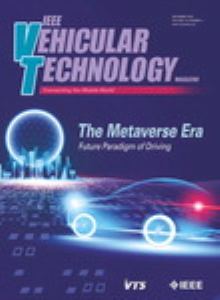A Novel Distributed Solution for Automatic Modulation Classification Based on Federated Learning and Modified LSTM
IF 7.1
2区 计算机科学
Q1 ENGINEERING, ELECTRICAL & ELECTRONIC
引用次数: 0
Abstract
Automatic modulation classification (AMC) is an indispensable technique in developing radio monitoring. It can automatically determine the modulation mode according to the collected radio signal. Due to the large amount of radio monitoring data being stored in the central server for AMC method, the risk of data leakage and insufficient communication bandwidth will arise. In this paper, an innovative learning framework - federated learning based on modified long short-term memory (FL-MoLSTM) is proposed for AMC. The framework of federated learning is adopted to save the limited communication bandwidth and improve data security. LSTM with attention mechanism is put forward, which can assign the weight of the learned features and reduce data redundancy. The federated averaging (FedAvg) algorithm is used for optimization. According to the characteristics of the modulated radio signals, the joint augmentation policy (JAP) combining rotation and flipping is drawn to improve the classification accuracy in FL-MoLSTM. Lastly, in FL-MoLSTM, the bandwidth shortage problem is addressed while protecting data privacy without causing severe performance loss. Our results show that the classification accuracy of FL-MoLSTM reaches more than 90% in AMC.基于联邦学习和改进LSTM的分布式调制自动分类解决方案
自动调制分类(AMC)是发展无线电监测不可缺少的技术。它可以根据采集到的无线电信号自动确定调制方式。由于AMC方法的无线电监测数据大量存储在中央服务器上,存在数据泄露和通信带宽不足的风险。本文提出了一种创新的学习框架——基于修正长短期记忆的联邦学习。采用联邦学习框架,节省了有限的通信带宽,提高了数据的安全性。提出了一种带有注意机制的LSTM方法,该方法可以为学习到的特征分配权重,减少数据冗余。采用联邦平均(FedAvg)算法进行优化。根据无线电调制信号的特点,提出了旋转和翻转相结合的联合增强策略,以提高FL-MoLSTM的分类精度。最后,在FL-MoLSTM中,在不造成严重性能损失的情况下,在保护数据隐私的同时解决了带宽短缺问题。结果表明,FL-MoLSTM在AMC下的分类准确率达到90%以上。
本文章由计算机程序翻译,如有差异,请以英文原文为准。
求助全文
约1分钟内获得全文
求助全文
来源期刊
CiteScore
6.00
自引率
8.80%
发文量
1245
审稿时长
6.3 months
期刊介绍:
The scope of the Transactions is threefold (which was approved by the IEEE Periodicals Committee in 1967) and is published on the journal website as follows: Communications: The use of mobile radio on land, sea, and air, including cellular radio, two-way radio, and one-way radio, with applications to dispatch and control vehicles, mobile radiotelephone, radio paging, and status monitoring and reporting. Related areas include spectrum usage, component radio equipment such as cavities and antennas, compute control for radio systems, digital modulation and transmission techniques, mobile radio circuit design, radio propagation for vehicular communications, effects of ignition noise and radio frequency interference, and consideration of the vehicle as part of the radio operating environment. Transportation Systems: The use of electronic technology for the control of ground transportation systems including, but not limited to, traffic aid systems; traffic control systems; automatic vehicle identification, location, and monitoring systems; automated transport systems, with single and multiple vehicle control; and moving walkways or people-movers. Vehicular Electronics: The use of electronic or electrical components and systems for control, propulsion, or auxiliary functions, including but not limited to, electronic controls for engineer, drive train, convenience, safety, and other vehicle systems; sensors, actuators, and microprocessors for onboard use; electronic fuel control systems; vehicle electrical components and systems collision avoidance systems; electromagnetic compatibility in the vehicle environment; and electric vehicles and controls.

 求助内容:
求助内容: 应助结果提醒方式:
应助结果提醒方式:


